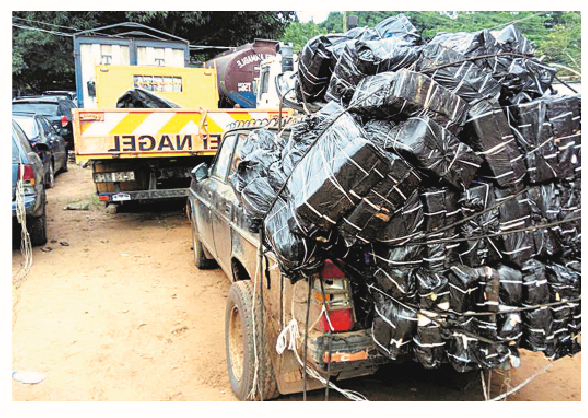Despite the potential of digitalisation in achieving regional integration, Africa experiences relatively slow adoption. Delays in clearing goods at countries’ borders and ports impede their timely and cost-efficient movement across the continent. Sub-Saharan Africa ranks lower in the border logistic index than the rest of the world. Import and export goods get delayed at borders due to administrative burdens and paperwork. One way to mitigate these challenges is by digitalising custom operations and clearance for efficiency and timeliness.
Over the last ten years, digitalisation has become a driver of economy and innovation in the financial and telecommunication sectors in Nigeria, South Africa, Kenya, and Egypt. There is enormous potential in leveraging digitalisation to scale up the Africa Continental Free Trade Agreement (AfCFTA) and address barriers to trade across the continent. The free movement of goods and persons across borders is critical to the success of the AfCFTA. The ability of goods and people to move across borders efficiently characterizes a strengthened regional chain.
AfCFTA heavily relies on moving people and goods across borders and ports. Goods sometimes pass through different borders as they undergo various value-addition processes before becoming finished products. A country’s readiness to trade is evident in the ease at which people and goods pass through its borders/ports. As observed across African borders, administrative issues like obtaining permits and clearance procedures are often daunting and time-consuming. These processes involve too many touchpoints in document verification. The long process often results in additional costs to importers and exporters.
The United Nations Conference on Trade and Development estimated a trade gain of about $20 billion annually through digitalising African customs and border operations. It means Africa would gain about $20 billion from voluntary trade when member states export goods they produce at the lowest cost possible, resulting in lower prices for consumers.
The digitalisation of all manual and paper-based processes
Submission, issuing, and verifying documents are still manual-based at the borders of many African countries. The manual approach in submitting and verifying documents is time-consuming and less efficient, as documents sometimes get mixed up or missing. Digitalisation through smart cards would ease importers’ and exporters’ identification and verification processes. Custom authorities could issue smart cards to importers and exporters with unique identification codes verifiable across all African borders at registration. A swift verification process through smart cards would eliminate extra charges incurred by importers and exporters. The extra charges incurred are usually due to the extended stay of containers at the terminal beyond the allotted time.
Importers and exporters can pre-upload all required documents for clearance through their unique identification codes. A quick scan of these codes would reveal all necessary documents and reduce the number of touchpoints for document verification.
While some African countries have partially or fully eradicated paper-based processes at their border, many still need to catch up. For instance, the Tanzania Revenue Authority recently launched the Pre-Arrival Declaration, “a clearance system which allows importers to start the clearance procedures of the goods before the arrival of the goods at the entry point.” This system processes registration and issuance of clearance certificates within 24 hours, making it easier for merchants to clear the goods in record time an avoid extra charges.
Reduced turnaround time in obtaining permits
The process of obtaining permits for import and export in many African countries is quite demanding. Due to differences in trade policies across the continent, the requirement for obtaining permits differs. There is a need to harmonize regional requirements for obtaining a permit for import and export. Through the trade facilitation portals, importers and exporters can register for permits online and get issuance in record time. The African Union, through the AfCFTA secretariat, could manage the trade facilitation portal by coordinating with relevant trade ministries in member countries. The automation process will make collating permit requests and issuance easier within the stipulated time frame. Reducing the turnaround time would incentivize importers and importers to trade.
Build cooperation among all border agencies.
Inter-border agencies’ cooperation is vital in the quest for efficient intra-African trade. The AfCFTA’s trade facilitation agreement “urges state parties to adopt ICT in customs and related procedures to facilitate the efficient and low-cost movement of goods across borders.” Border agencies can synergize trade document control, inspection, and verification through the single window system through data sharing and synchronization. A single window system is a facility that allows parties involved in trade and transport to lodge standardised information and documents.
Continued adoption of digitalized solutions such as single window systems and smart cards in border operations will ease pressure on the labor force, reduce associated costs and improve efficiency.
– Ojo is a writing fellow at African Liberty.





